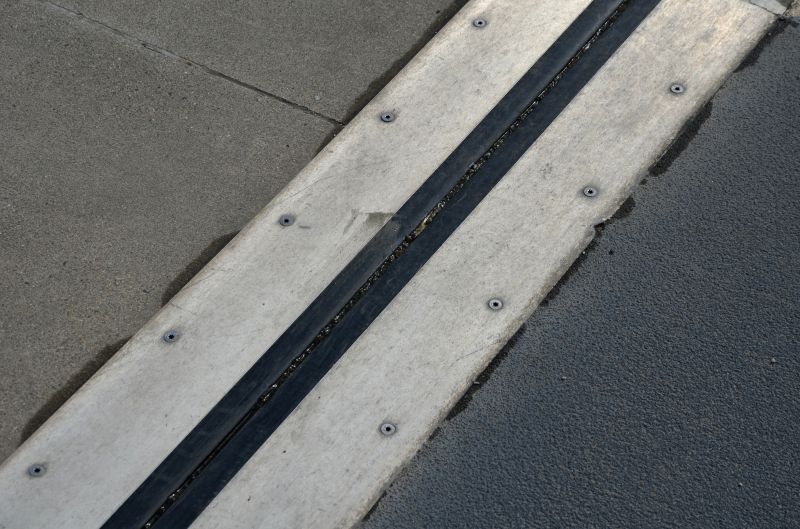Popular Solutions for Concrete Expansion Joint Installation Needs
Find out which products are favored by contractors for seamless and effective concrete joint installations across different applications.
 Concrete expansion joints are essential components in managing the natural movement of concrete structures, helping to prevent cracking and structural damage over time. These joints accommodate thermal expansion, contraction, and other stresses that occur due to temperature fluctuations and load changes. Selecting the right products for installation ensures that the joints perform effectively, maintaining the integrity and longevity of the concrete surface. Various types of expansion joint products are available, each suited to different applications, environments, and load requirements.
Concrete expansion joints are essential components in managing the natural movement of concrete structures, helping to prevent cracking and structural damage over time. These joints accommodate thermal expansion, contraction, and other stresses that occur due to temperature fluctuations and load changes. Selecting the right products for installation ensures that the joints perform effectively, maintaining the integrity and longevity of the concrete surface. Various types of expansion joint products are available, each suited to different applications, environments, and load requirements.
Top Overall Option
Flexible Pre-formed Expansion Joint Filler
A versatile and durable pre-formed expansion joint filler made from high-quality compressible material. It is designed to accommodate movement and resist deformation over time, making it suitable for a variety of concrete applications. This product provides a reliable seal and is easy to install, helping to maintain the integrity of concrete joints in both indoor and outdoor settings.
Types of Products For Concrete Expansion Joint Installations
Pre-formed Rubber Expansion Joints
Pre-formed rubber joints offer flexibility and resilience, suitable for dynamic movement in concrete surfaces.
Sealant-Based Expansion Joint Fillers
Flexible sealants provide a seamless, weather-resistant seal for joints, ideal for areas exposed to moisture.
Compression Seal Expansion Joints
Designed to be compressed into the joint space, these provide a tight seal while accommodating movement.
Metal Expansion Joints
Metal joints are used in heavy-duty applications, offering strength and durability for large structures.
Foam Backer Rods
Backer rods serve as a backing material for sealants, helping to control the depth of the sealant and improve adhesion.
Bituminous Expansion Joints
Bituminous products are used for waterproofing and sealing joints in pavements and roads.
Elastomeric Joint Covers
These covers provide a protective barrier and flexibility, suitable for traffic-heavy areas.
Fiberboard Expansion Joints
Fiberboard joints are used for lightweight, non-traffic areas, offering easy installation.
PVC Expansion Joints
PVC joints are resistant to moisture and chemicals, suitable for industrial environments.
Polyurethane Sealants
Polyurethane sealants offer high elasticity and adhesion, suitable for a variety of joint sizes.
Asphalt Expansion Joints
Used primarily in asphalt pavements, these joints help accommodate movement and prevent cracking.
Flexible Epoxy Sealants
Epoxy-based sealants provide strong adhesion and chemical resistance for specialized applications.
Popular Choices
Commonly used for their flexibility and weather resistance in various concrete projects.
Widely used as backing in joint sealing, offering ease of installation and effective sealing.
Popular for their waterproofing capabilities and ease of application in concrete joints.
Preferred for their compressibility and adaptability to movement in concrete structures.
Chosen for their chemical resistance and durability in industrial environments.
Used for sealing joints in pavements, offering waterproofing and flexibility.
Popular for traffic areas due to their durability and protective qualities.
Common in lightweight applications where ease of installation is a priority.
Selected for large-scale structural applications requiring high strength.
Favored for their elasticity and adhesion in diverse joint configurations.
Frequently used in roadway and pavement projects for movement accommodation.
Chosen for specialized applications requiring chemical resistance and strong adhesion.
Installation of expansion joints involves careful consideration of the material compatibility, flexibility, and durability of the products used. Properly installed joints can reduce maintenance costs and improve the safety and appearance of concrete surfaces such as pavements, sidewalks, driveways, and industrial floors. It is important to match the joint material to the specific needs of the project, whether it requires a flexible sealant, a pre-formed strip, or a specialized expansion joint system.
When choosing products for concrete expansion joint installations, factors such as weather resistance, compression set, ease of installation, and compatibility with existing concrete are critical. Some products are designed for temporary use, while others are intended for long-term installation. A thorough understanding of these options can help in selecting the most suitable product type for your project, ensuring that the expansion joints perform reliably under various conditions.
Ultimately, the right expansion joint products contribute to the structural health of concrete installations, preventing costly repairs and enhancing safety. Whether you are working on a small residential project or a large commercial site, understanding the different product options and their applications can lead to better outcomes and more durable results.
Key Buying Considerations
- Compatibility with the concrete environment and expected movement range
- Material flexibility and ability to accommodate expansion and contraction
- Weather resistance and durability for outdoor applications
- Ease of installation and whether specialized tools or skills are required
- Sealing effectiveness to prevent water infiltration and debris entry
- Compression set resistance to maintain joint integrity over time
- Compatibility with existing joint materials and surfaces
- Longevity and maintenance requirements of the product
- Load-bearing capacity in high-traffic or heavy equipment areas
- Cost-effectiveness relative to project scope and expected lifespan
- Environmental conditions such as exposure to chemicals or UV radiation
- Flexibility in joint size and shape to fit specific project needs
- Availability of product sizes and pre-formed options
- Compliance with relevant standards and building codes
- Ease of removal or replacement if necessary in future maintenance
